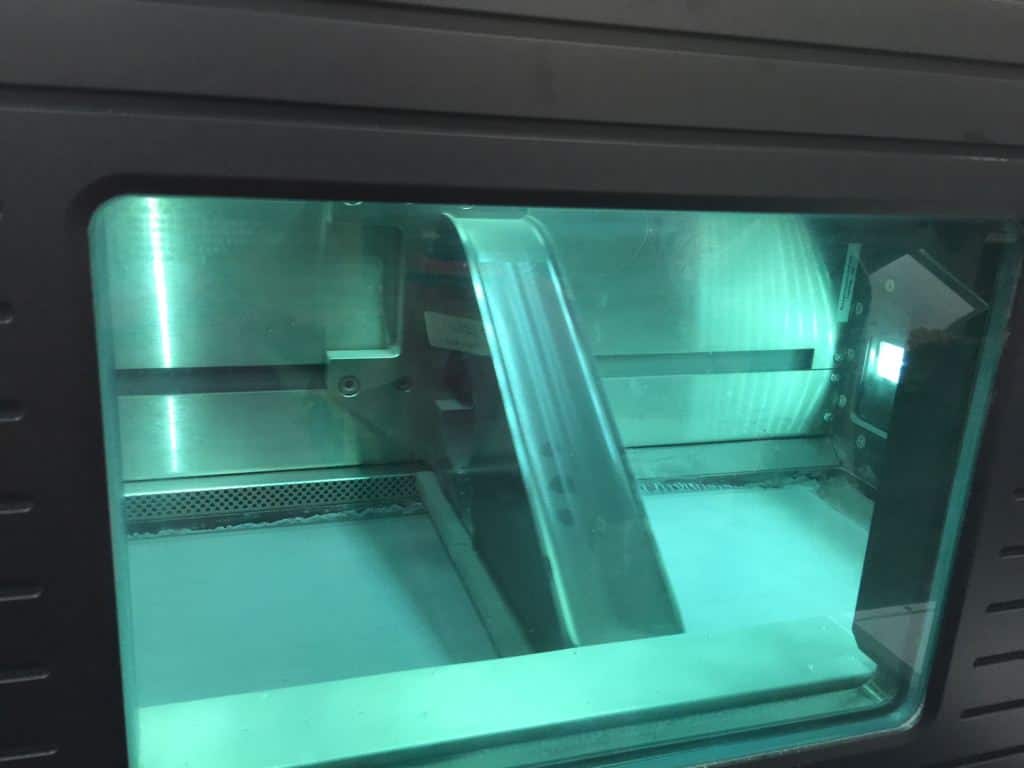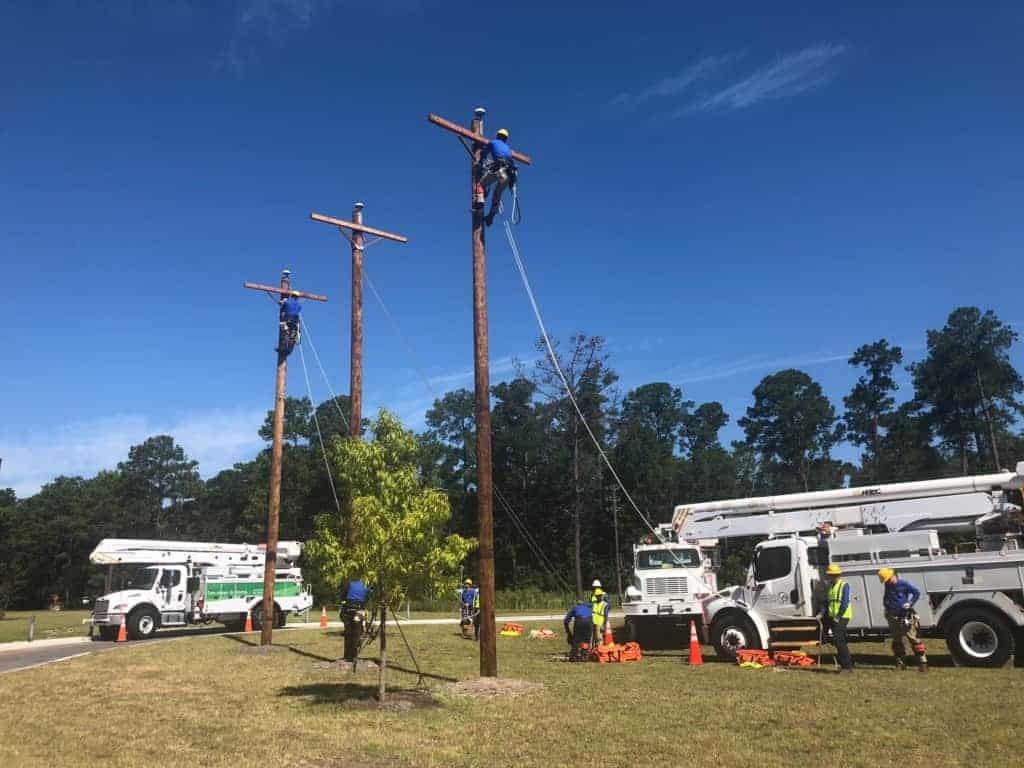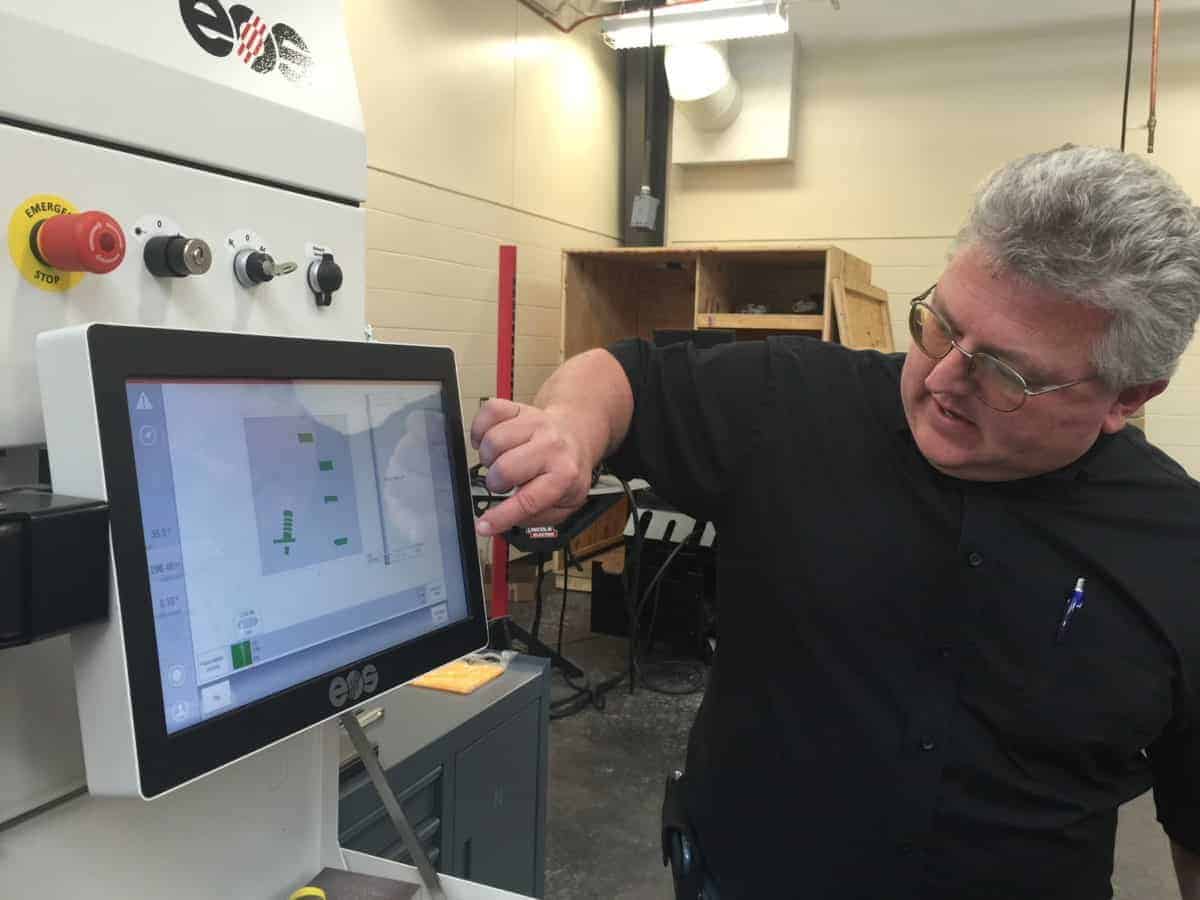Back in 2016, several western North Carolina manufacturers faced a common dilemma: They could not find replacement parts for critical pieces of equipment — meaning they would have to replace entire machines to continue their operations.
As a last-ditch effort, they brought the broken parts to the students at Mayland Community College. The students in the robotics and mechatronics training program studied the broken parts, fabricated replacements electronically, and then used 3D printing to create new parts for the manufacturers. This process provided the manufacturers valuable cost-savings, created real-world problem solving for the students, and helped keep companies in business.

The solution Mayland Community College students created was made possible through the Duke Energy Community College Grant Program. Established in 2004, the program empowers community colleges and strengthens the value they add in workforce and economic development. Through this grant program, we see firsthand how community colleges across the state are meeting workforce and business needs in innovative ways.
At Duke Energy, our 29,000 employees come to work each day to power the lives of our customers and the vitality of our communities. It is a job that requires cultivating partnerships across diverse geography and industry. In every community across the state, we have found two things to be true:
- People are eager to work at jobs that challenge and reward them.
- There is a community college ready to prepare workers with the skills they need.
Our community college system is a unique asset that supports all businesses across North Carolina. It is a tool that helps recruit new companies and helps existing businesses expand by keeping workforce skills current.
Duke Energy’s support of NC Community Colleges goes back decades and has evolved to an integrated partnership where community colleges are now helping develop our industry’s workforce. For example, North Carolina’s growing population means more power lines connecting homes and businesses to the grid and a greater need for lineworkers.

With many current lineworkers nearing retirement, the need is magnified. Working with a collaborative of electric utilities across the state, community colleges are developing new programs to meet this pressing workforce need and train students for these well-paying jobs. Students can jump-start a career path earning $30,000 to $40,000-a-year with opportunities to advance and grow.
In July, we celebrated a $200,000 Duke Energy/Piedmont Natural Gas Community College Apprenticeship Grant Program investment in a new electrical lineworker apprenticeship program at Cape Fear Community College in eastern North Carolina. Students demonstrated how they safely climb poles and install critical infrastructure. Just several weeks into their training, all students had multiple job offers from utilities excited to employ these promising trainees. Cape Fear’s training program, and others like it, demonstrate the ability of our community colleges to respond to changing needs and build the workforce to support the state’s economic growth.
North Carolina’s community colleges are a force for good business.
From attracting new industry with customized training programs, to helping long-time businesses replace parts or train a new generation of workers, the schools exhibit agility and responsiveness, making North Carolina a better place to do business. We are grateful for the value community colleges add to our state.
About the Duke Energy/Piedmont Natural Gas Community College Apprenticeship Grant Program
The Duke Energy/Piedmont Natural Gas Community College Apprenticeship Grant Program continues to fund community college apprenticeships across the state with valuable guidance from Napoleon Wallace, assistant secretary, NC Department of Commerce and Maureen Little, vice president of economic development, NC Community College System. Assistant Secretary Wallace and Ms. Little serve on the grant committee with John Geib, director, economic development, Duke Energy. The grant program’s next application deadline is Jan. 1, 2019.




